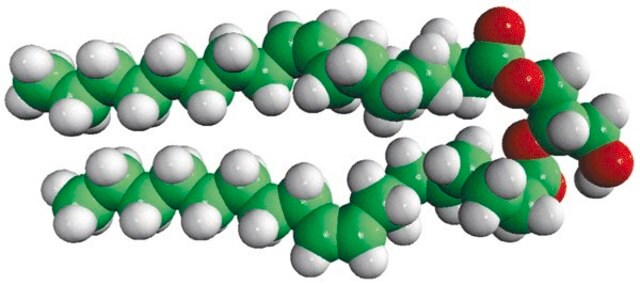850395C
Avanti
18:3 (Cis) PC
Avanti Research™ - A Croda Brand 850395C
Synonym(s):
1,2-dilinolenoyl-sn-glycero-3-phosphocholine
About This Item
Recommended Products
Assay
>99% (TLC)
form
liquid
packaging
pkg of 1 × 2.5 mL (850395C-25mg)
pkg of 2 × 4 mL (850395C-200mg)
manufacturer/tradename
Avanti Research™ - A Croda Brand 850395C
concentration
10 mg/mL (850395C-25mg)
25 mg/mL (850395C-200mg)
lipid type
cardiolipins
phospholipids
shipped in
dry ice
storage temp.
−20°C
General description
Application
- might be used in aqueous lipid-trehalose formulations to assess the long-term storage stability of lyophilized liposomes
- might be used in phospholipid monolayer to study the instability of unsaturated phospholipids at specified conditions
- has been used in aqueous sugar formulations or liposome formulations to characterize its degradation during lyophilization
Packaging
Legal Information
also commonly purchased with this product
Signal Word
Danger
Hazard Statements
Precautionary Statements
Hazard Classifications
Acute Tox. 3 Inhalation - Acute Tox. 4 Oral - Aquatic Chronic 3 - Carc. 2 - Eye Irrit. 2 - Repr. 2 - Skin Irrit. 2 - STOT RE 1 - STOT SE 3
Target Organs
Central nervous system, Liver,Kidney
WGK
WGK 3
Certificates of Analysis (COA)
Search for Certificates of Analysis (COA) by entering the products Lot/Batch Number. Lot and Batch Numbers can be found on a product’s label following the words ‘Lot’ or ‘Batch’.
Already Own This Product?
Find documentation for the products that you have recently purchased in the Document Library.
Customers Also Viewed
Our team of scientists has experience in all areas of research including Life Science, Material Science, Chemical Synthesis, Chromatography, Analytical and many others.
Contact Technical Service











